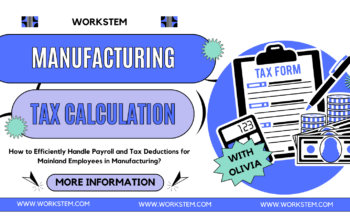As the COVID-19 pandemic continues to wreak havoc on Hong Kong’s economy, “redundancies and closures” are no longer new to us. The Census and Statistics Department announced that the seasonally adjusted unemployment rate from March to May was 6% . The epidemic has placed a big impact on our work and life with businesses closing down. The combined unemployment rate for consumer and travel-related sectors (i.e. retail, accommodation and catering services) reached to 9.4%.
Company’s capital is not enough to support its operation, so it is understandable that some employees need to be laid off to reduce expenses. But there are also employers who are using all sorts of bogus excuses to lay off people in all sorts of weird ways in order not to pay normal payment in lieu of notice, severance or long service. The Labour Service Centre of the Trade Union is concerned about the summary layoff of employees by employers for far-fetched and absurd reasons, such as:
- To advise the head office without the approval of the superior
- A supermarket employee was laid off after being accused of making use of the company’s plastic bags when he took his belongings away from work, but did not realize that dozens of plastic bags stuck to each other
- Refuse to work overtime
What are reasonable grounds for layoff?
Under the Employment Ordinance, an employer is justified in laying off an employee or changing the terms of his/her employment contract if he/she proves that he/she has justified any of the following five reasons:
- Employee’s conduct;
- The ability or qualification required by the employee for work;
- Layoff or other genuine business operation needs;
- The provisions of the law; or
- Other substantive reasons.
Prior notice or payment in lieu of notice is required for layoff on the above grounds and payment of the layoff of employment contract including non-payable salaries, annual leave pay, long service payment or severance payment (if any), other payments specified in the employment contract shall be paid within 7 days of the contract layoff date or the contract layoff date.
Read More:
How to Legally Terminate Employees When the Business is Slumping?
How to Calculate the Notice Period When Dismissing an Employee?
Under what circumstances can an employee be legally laid off?
An employer may summarily lay off an employee without prior notice or pay in lieu of notice if employees in matters relating to their employment:
- Willfully disobey lawful and reasonable orders of the employer;
- Improper behavior;
- Fraud and disloyalty; or
- Habitual neglect of duty.
Note: participation in a strike is not a legitimate reason for layoff an employer’s contract without notice or payment in lieu of notice
According to a true case of employee misconduct or fraud presented by the Law and Information Technology Research Centre of the University of Hong Kong, a company manager who reported his personal entertainment expenses as official expenses was found by a court to be dishonest enough to warrant summary layoff.
Note: Summary layoff is a serious disciplinary action and only applies if the employee has committed a very serious fault or has failed to improve after repeated warnings.
In addition, it is an offence for an employer to lay off an employee in the following circumstances:
- An employee whose pregnancy has been confirmed and whose pregnancy notice has been given;
- Period of paid sick leave;
- Employees have given evidence or information to a public officer conducting an inquiry in legal proceedings relating to the enforcement of the Employment Ordinance, an accident at work or a breach of work safety legislation;
- Employees’ participation in trade unions or trade union activities;
- Before an agreement on workers’ compensation has been reached with an employee injured at work, or before the relevant assessment certificate has been issued.
I believe that employers will also encounter troubled employees, such as some people who are very fond of making excuses, procrastinating, shirking responsibilities, etc., or they are very disgusted and want to find reasons to “lay off”. In any case, employers need to be aware of the circumstances under which immediate layoff is warranted, and be sure to provide evidence that the employee’s failure to do so has caused problems or adverse effects on the company’s operations, finances or other aspects.
However, even if immediate layoff does not require prior notice or payment in lieu of notice, the layoff of employment contract needs to be clarified and paid promptly!
Great recommendation! Workstem improves payroll efficiency.
The Workstem system can provides a full range of solutions to help your business management of other HR processes, such as Rostering、Attendance、Leave, MPF and tax return management, etc., help you can truly realize digital transformation and improve management efficiency and employee satisfaction.
Read More:
As Layoffs Spread, How to Calculate Severance Payment or Long Service Payment to Employees?
How to Calculate Annual Leave Payment on Termination of Employment Contract?







